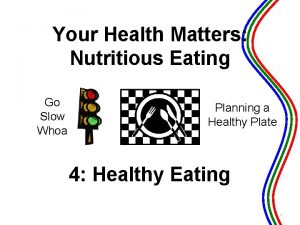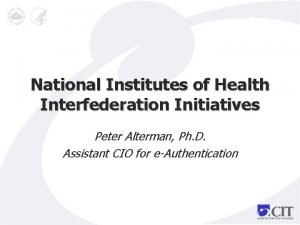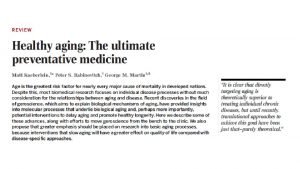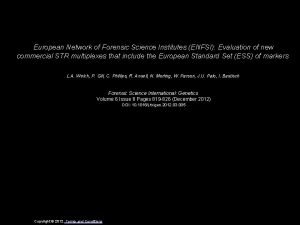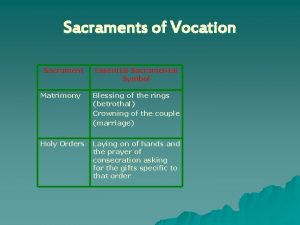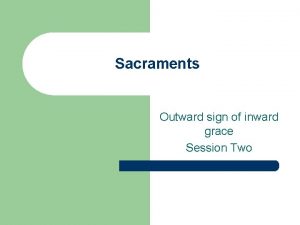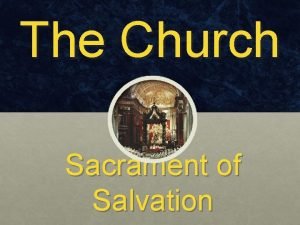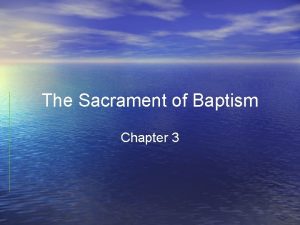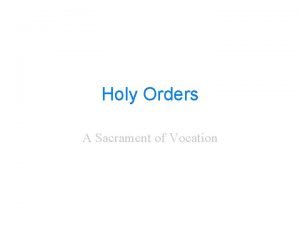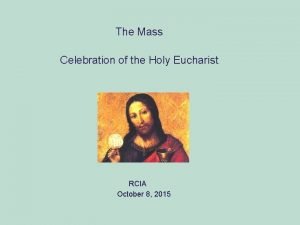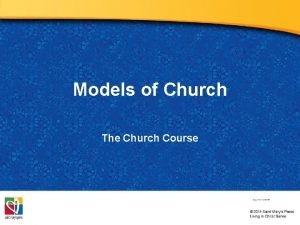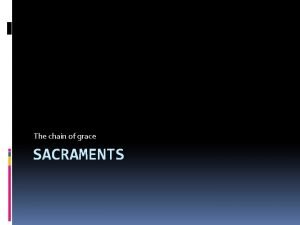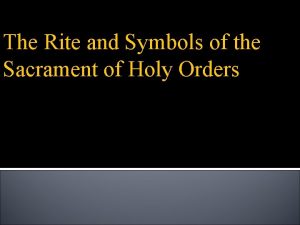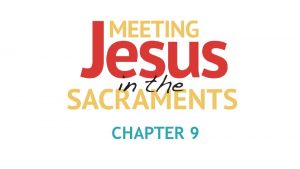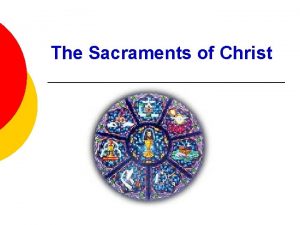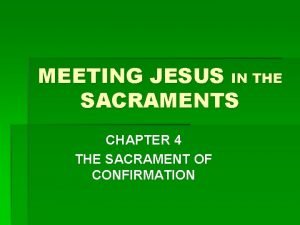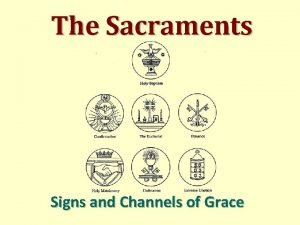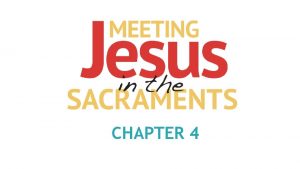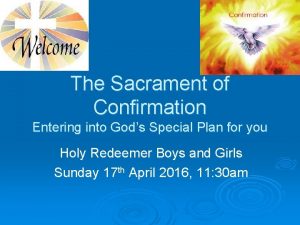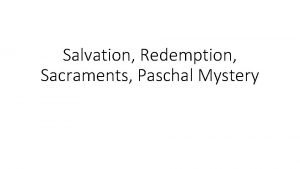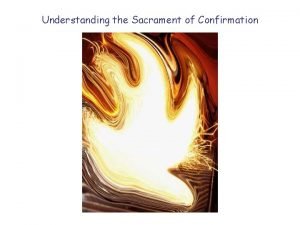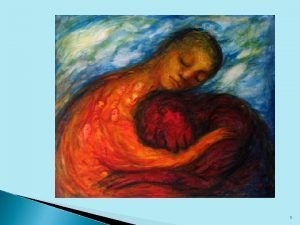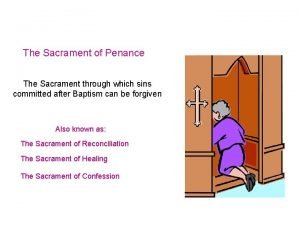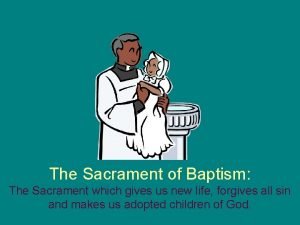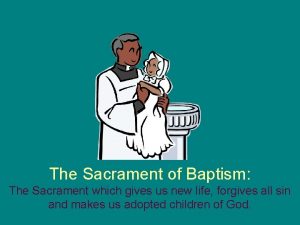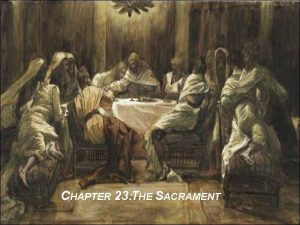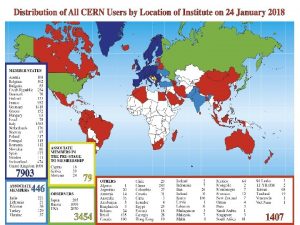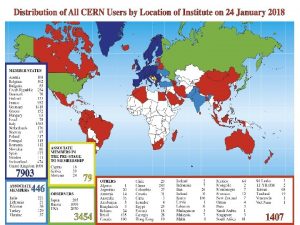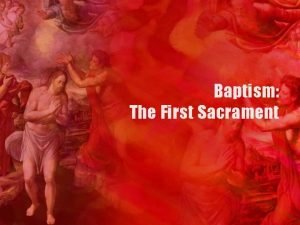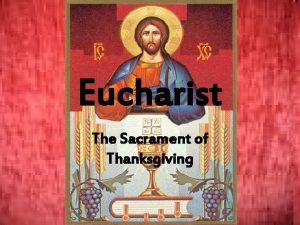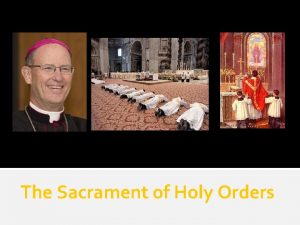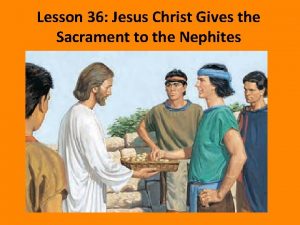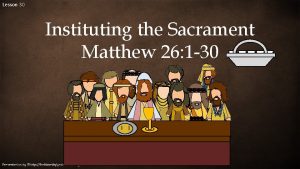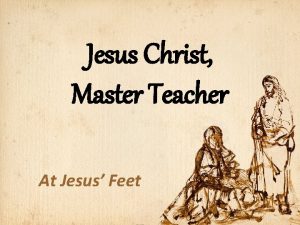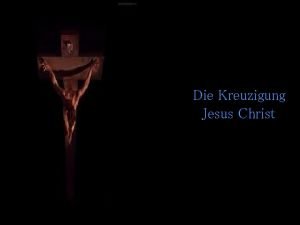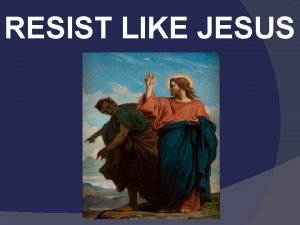Jesus institutes the Sacrament Matthew 26 Matthew 26

































- Slides: 33

Jesus institutes the Sacrament Matthew 26

Matthew 26 Tension mounting - it’s Thursday.

In Matthew 26: 6– 13: What principles do you see here? Elder James E. Talmage explained, “To anoint the head of a guest with ordinary oil was to do him honor; to anoint his feet also was to show unusual and signal regard; but the anointing of head and feet with spikenard, and in such abundance, was an act of reverential homage rarely rendered even to kings. Mary’s act was an expression of adoration; it was the fragrant

Matthew 26: 14– 16 What Judas did after the Savior chided him for complaining. “According to the law of Moses, thirty shekels of silver would compensate an owner for the death of a slave (see Exodus 21: 32). … The betrayal price reflects the low regard Judas and the chief priests had for the Savior” (New Testament Student Manual [Church Educational System manual, 2014], 81). It also fulfilled an Old Testament prophecy of Judas’s betrayal of the Savior (see Zechariah 11: 12).

Matthew 26 Time for the Passover - what do you know about it?

First Passover: Exodus 12: 1 -12. Mark everything you think may be symbolic

VIDEO

The Passover (3: 07) https: //www. lds. org/media-library/video/2011 -03 -041 -the-passover? lang=eng

What was something interesting you learned that you didn’t know before?

The Passover �Exodus 12: 21 -24 �How much blood would you have personally place on your door if you were alive for this event? �Exodus 12: 29 -32, 51

“The death of the first born got the children of Israel out of Egypt. The death of The First Born gets Egypt out of us!” Matt 26: 17 -22

• What is leaven? What does leaven symbolize? • Exodus 12: 15. What does this symbolize? • Do you have any leaven in your life?

Exodus 13: 8– 10 Symbols Zeroah (Roasted bone) Temple sacrifice Beitzah (Boilded egg) Trials Maror and Chazeret (Horseradish and Bitter Lettuce) Harsh sufferings Charoset (Chopped apples, walnuts and wine) Bricks and Mortar Karpas (onions or parsley) Dipped into salt water to represent tears of slaves

Passover Sacrament

Think about the Sacrament in your ward. 3 things/events during the Sacrament that point my mind toward Jesus Christ are: 1. 2. 3. Funeral

Always Remember Him (5: 27) https: //www. lds. org/youth/article/always-remember-him? lang=eng

Always Remember Him (5: 27) https: //www. lds. org/youth/article/always-remember-him? lang=eng

Our Passover “Do we see our weekly sacramental service as our Passover? With so very much at stake, this ordinance commemorating our escape from the angel of darkness should be taken more seriously than it sometimes is. ” Jeffrey R. Holland, Oct. 1995 Gen. Conf.

The Promise Exodus 13: 21 -22 How is this promise alive today?


The Sacrament: An Analogy




• Currently, the Tomb Guards work on a three team rotation - 24 hours on, 24 hours off, 24 hours on, 96 hours off. • It takes an average of 6 hours for a sentinel to prepare his/her uniform for his/her ‘walk’. • Each soldier must be in superb physical condition, possess an unblemished military record and be between 5 feet, 10 inches and 6 feet, 4 inches tall, with a proportionate weight and build. • During the trial phase, would-be sentinels memorize 7 pages of Arlington National Cemetery history. This information must be recited verbatim in order to earn a "walk. “ • The Sentinel takes 21 steps (alluding to the twenty-one gun salute, the highest honor given any military dignitary). • The Guard is changed every thirty minutes

• The Sentinel stops on the 21 st step, then turns and faces the Tomb for 21 seconds. They then turn to face back down the mat, changes the weapon to the outside shoulder, mentally counts off 21 seconds, then steps off for another 21 step walk down the mat. They face the Tomb at each end of the 21 step walk for 21 seconds. The Sentinel then repeats this over and over until the Guard Change ceremony begins. • Gloves are moistened to improve the grip on the rifle.

• The Tomb Guard Identification Badge (TGIB) is awarded after the Sentinel passes (with 95% accuracy) a series of 300 questions, both written, oral, and demonstrative. Only 600 have been awarded since its creation in the late 1950's (on average 10 per year). • The Tomb Guard Identification Badge is one of the least awarded badges in the Army, second only to the Astronaut Badge. • Since the sentinels are held to such a high standard, if they ever do anything that is deemed behavior unbecoming a Tomb Guard or brings dishonor upon the Tomb, their badges may be revoked, even after the sentinels have left active duty military

Matthew 26 “We commemorate His Atonement in a very personal way. We bring a broken heart and a contrite spirit to our sacrament meeting. It is the highlight of our Sabbath-day observance. “Those participating should be seated at least five minutes before the meeting begins so they can be spiritually prepared for a worshipful experience. During that quiet interval, prelude music is subdued. This is not a time for conversation or transmission of messages but a period of prayerful meditation as leaders and members prepare spiritually for the sacrament. ”

Matthew 26 “The ordinance of the sacrament makes the sacrament meeting the most sacred and important meeting in the Church. “Sacrament meeting is not a time for whispered conversations on cell phones or for texting. “During sacrament meeting—and especially during the sacrament service—we should concentrate on worship and refrain from all other activities. “How wonderful when every person in attendance joins in the worship of singing—especially in the hymn that helps us prepare to partake of the sacrament. ” Dallin H. Oaks, October 2008 General Conference

Matthew 26 Imagine you are sitting in the congregation during sacrament meeting. The sacrament Hymn has just concluded and everyone is prepared to listen to the blessing on the sacrament. What distractions do you try to avoid? What do you do to help you focus on the Savior?

Matthew 26 Imagine a Deacon has just brought the sacrament to where you are sitting and you are about to take it. What promises are you about to make? What blessings can you receive from this experience? Why is this ordinance important to you? What can you do to improve your experience of partaking of the sacrament?

Matthew 26 “They were exceeding sorrowful, and began every one of them to say unto him, Lord, is it I? ’ [Matthew 26: 22]. “I wonder what each of us would do. … Would we look at those around us and say in our hearts, ‘He’s probably talking about Brother Johnson. I’ve always wondered about him, ’ or ‘I’m glad Brother Brown is here. He really needs to hear this message’? Or would we, like those disciples of old, look inward and ask that penetrating question: ‘Is it I? ’ In these simple words, ‘Lord, is it I? ’ lies the beginning of wisdom and the pathway to personal conversion and lasting change. … “And if the Lord’s answer happens to be ‘Yes, my son [or daughter], there are things you must improve, things I can help you to overcome, ’ I pray that we will accept this answer, humbly acknowledge our sins

Jesus institutes the Sacrament Matthew 26
 O sacrament most holy oh sacrament divine
O sacrament most holy oh sacrament divine Matthew 9:35-38 nkjv
Matthew 9:35-38 nkjv Jesus is the sweetest name i know
Jesus is the sweetest name i know Jesus jesus jesus in the morning
Jesus jesus jesus in the morning Best jee coaching in agra
Best jee coaching in agra Top bank po coaching institutes hyderabad
Top bank po coaching institutes hyderabad National institutes of health
National institutes of health National institutes for health
National institutes for health Wisconsin institutes of discovery
Wisconsin institutes of discovery List of nih institutes
List of nih institutes European network of forensic science institutes
European network of forensic science institutes The vocation sacraments are
The vocation sacraments are The sacrament of the eucharist chapter 5
The sacrament of the eucharist chapter 5 Sacrament of vocation
Sacrament of vocation Outward sign of inward grace st augustine
Outward sign of inward grace st augustine The church sacrament of salvation chapter 3 study questions
The church sacrament of salvation chapter 3 study questions Pompa definition
Pompa definition Sacrament of vocation
Sacrament of vocation Sacrament prayer bread
Sacrament prayer bread 3 models of the church
3 models of the church Mysterion sacrament
Mysterion sacrament Holy orders symbols
Holy orders symbols The sacrament of matrimony chapter 9 crossword
The sacrament of matrimony chapter 9 crossword The last supper golden ratio
The last supper golden ratio What is sacrament
What is sacrament Meeting jesus in the sacraments chapter 3
Meeting jesus in the sacraments chapter 3 Graces of reconciliation
Graces of reconciliation Meeting jesus in the sacraments chapter 3
Meeting jesus in the sacraments chapter 3 The sacrament of confirmation chapter 4
The sacrament of confirmation chapter 4 Confirmation sacrament
Confirmation sacrament Paschal mystery definition
Paschal mystery definition Confirmation sacrament symbols
Confirmation sacrament symbols Jesus jesus how i trust him
Jesus jesus how i trust him Kerygmatischer jesus
Kerygmatischer jesus






